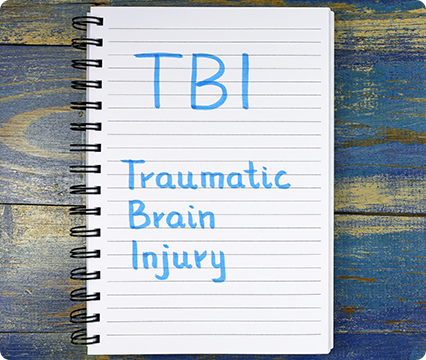

Diet and Traumatic Brain Injury
The CNP Diet and Traumatic Brain Injury Research Category consolidates research exploring the interdependent relationship between dietary intake and traumatic brain injuries. To view each original study on the open internet, click “Original.” To view the CNP-written abstract summary, click “CNP Summary.” While only some of the CNP-written abstract summaries are available below for free, all abstract summaries are available to CNP members through the CNP Library Membership.
While effective traumatic brain injury treatments are currently limited, Rice et al. (2019) believe that gut microbiome manipulation through the intake of probiotics may have potential in ameliorating the pathology and symptoms of traumatic brain injury (TBI). The aim of this review was to explore this potential and to describe the role of the gut microbiome in the biochemical, neuroanatomical, and behavioral/cognitive consequences of traumatic brain injury. Firstly, the review explains that the gut microbiome is involved in the alteration of several cellular and molecular processes that are important to the progression of TBI-induced pathologies such as neuroinflammation, immune system response, and intestinal motility and permeability. Gut dysbiosis, which is the disruption of gut microbiota composition, has been found to contribute to TBI-related neuropathology and impaired behavioral outcomes. Other animal model studies have indicated that gut dysbiosis worsens behavioral problems in test subjects with traumatic brain injury and spinal cord injury. Gut dysbiosis has also demonstrated negative effects in murine stroke models. Recent studies involving stroke and spinal cord injury models have showcased the potential of microbiota transplants and probiotics in mitigating neuroanatomical damage and functional impairments. Probiotics have been shown to reduce infection rate in hospitalized patients with brain trauma, and to reduce time spent in intensive care. Perturbed gut microbiota composition and its metabolite profile have been suggested as markers for injury severity and progression.
2020
Western diet aggravates neuronal insult in post-traumatic brain injury: Proposed pathways for interplay
CNP Research Summary can be found in the CNP Library Membership
2019
Lactobacillus Acidophilus exerts neuroprotective effects in mice with traumatic brain injury
2017
The bidirectional gut-brain-microbiota axis as a potential nexus between traumatic brain Injury, inflammation, and disease
CNP Research Summary can be found in the CNP Library Membership
2013
Exercise facilitates the action of dietary DHA on functional recovery after brain trauma
2014
Dietary strategy to repair plasma membrane after brain trauma: Implications for plasticity and cognition
CNP Research Summary can be found in the CNP Library Membership
2019
The behavioural and pathophysiological effects of the ketogenic diet on mild traumatic brain injury in adolescent rats (animal study)
2019
Gut microbiota as a therapeutic target to ameliorate the biochemical, neuroanatomical, and behavioral effects of traumatic brain injuries
